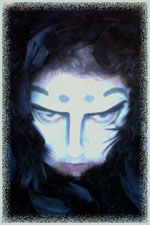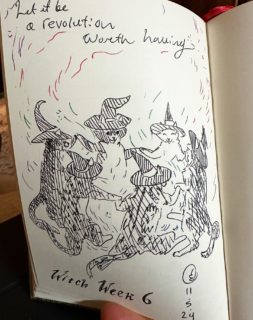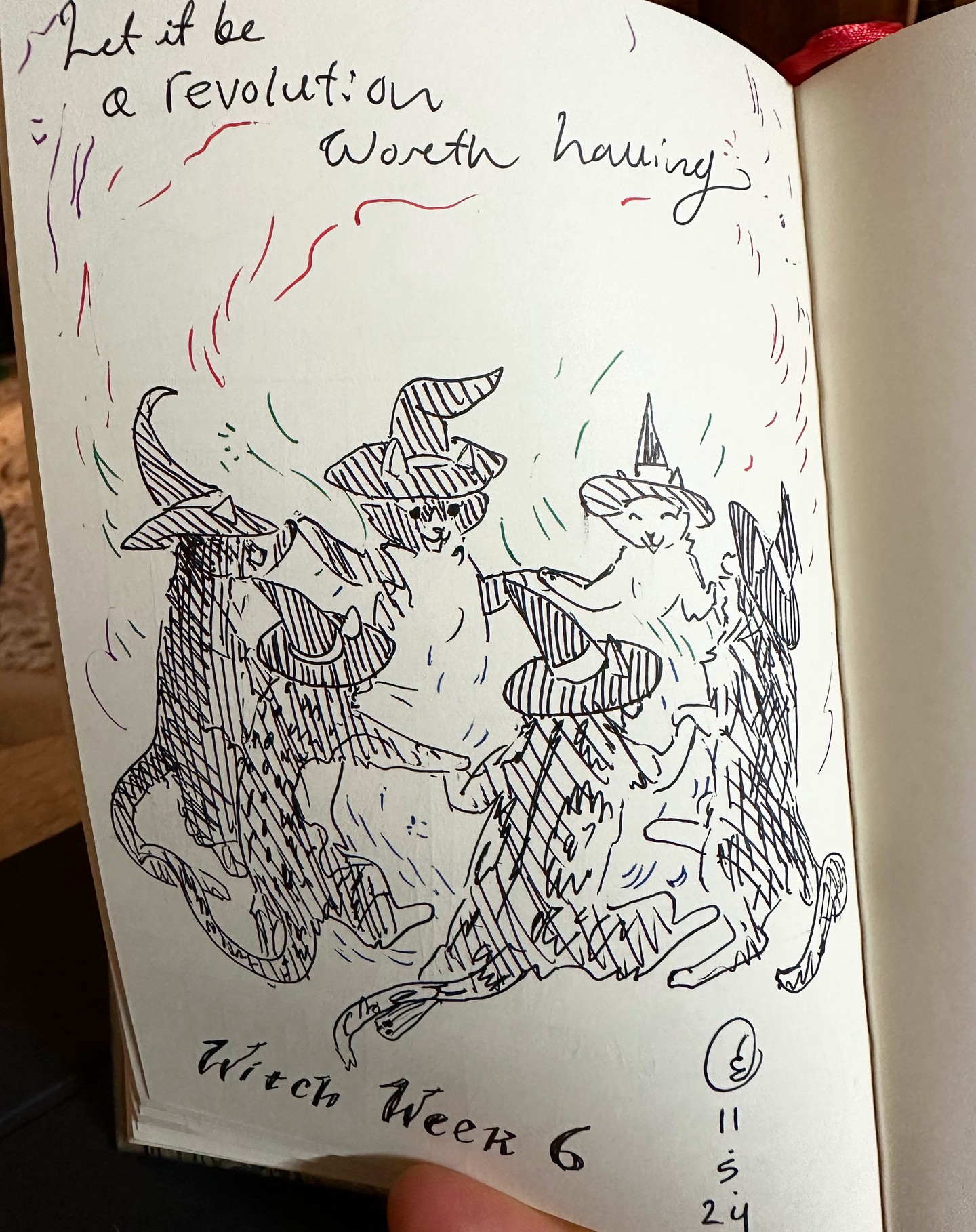 Happy New Year internet! Have a rant I originally posted to Live Journal on January 4 2011. But I think it’s worth archiving here.
Happy New Year internet! Have a rant I originally posted to Live Journal on January 4 2011. But I think it’s worth archiving here.
The trouble with adapting a story to another media, is that if that story is already practically perfect, any changes you make in the act of adaptation are more likely than not to make it worse. For to be practically perfect (and nothing can ever be perfectly perfect, only practically perfect, like Mary Poppins) means a story needs no more changes. It is perfect as it is. And when you go in and tinker with its workings, trying to get it to run as, say, a movie or a television show, chances are you are only go to break it. If you’re particularly skilled at this sort of thing, or if you’re just very lucky, maybe you will not break it too badly and you’ll be able to get it to run tolerably well on its new tracks. But chances are it will not be the same.
Adapting such a perfect story is like trying to rebuild a stick tower from the bottom up without having it fall down; you never know which apparently superfluous stick is actually quite relevant until you remove it and your audience shouts back at you that you do not have a tower, merely a disordered pile of sticks.
My point in a case: Steven Moffat’s reinterpretation of Sherlock Holmes by Sir Arthur Conan Doyle as a modern-day consulting detective. In this he is laboring under not one, but two serious disadvantages—and not, as one might expect, the change in setting: the Holmesian Paradigm is so strong you could set it on the moon a thousand years in the future and it would work just as well. No, the problems are these: 1: that the Sherlock Holmes stories are among that wonderful set of practically perfect pieces of writing, which tend to overshadow any adaptation by their sheer brilliance, and 2: that the impossible has already been done: they have already been adapted, practically perfectly, by John Hawksworth in the 1980’s Grenada mini-series starring Jeremy Brett. (Which is to be a subject of another journal.)
So what is left for poor Steven? Well, he has actually given himself something of an advantage by transplanting the stories into modern-day London; in doing so he has brought Holmes (or Sherlock, as we must now call him) out of the past and into the immediate present. No longer must the audience work time-travel into the fantasy of meeting Sherlock Holmes, only that peculiar leap of faith that allows us to jump from the real world into the imagined one. It is like meeting an old friend in a strange new country, and finding him getting on much as he used to: texts may have taken the place of telegrams, the cabbies have become automobiles, and Sherlock has abandoned the pipe in favor of nicotine patches and acquired a Neil Gaimanesque haircut, but all the old hallmarks are there.
All save one. And that, sadly, is Sherlock Holmes himself.
Oh, they have done a clever job of it, and to be sure this Sherlock has many of those characteristics that make him an unmistakable Holmesian figure: the razor intellect, the humor, the wit—even the voice and cat-like grace, for which I must give humble admiration to actor Benedict Cumberbatch. But this Sherlock sadly suffers from the modern television writer’s style of needing to make everything harsher, colder, faster and stronger. This is not Holmes as we knew him. It is close, yes, but Holmes is such a beautifully rendered character that to tinker with him—as with any of his stories—is likely to break him. So Sherlock is not Holmes: he is a younger, more impetuous man. Harder, with a cruel curve and alienating tendencies that remind one more of House, from the American TV show, than of his august progenitor. Of course, House himself is said to be based on Holmes, if only loosely. But both House and Sherlock suffer from this: that in adapting the character of Sherlock Holmes the writers have concentrated on his cold, calculating, manipulative, irritable, competitive, anti-social side so far that it appears to be the beginning and end of him.
This is all very well for House, as it helps to differentiate him from his intellectual relative over the pond, but it simply will not do for Sherlock. Because Holmes, I am happy to say, was not all cold reasoning. For all he tried to be the perfect analytical machine, he failed at it happily. Not in that he got things wrong—that happened exceedingly rarely, and he soon put it right—but that he so often slipped out of his hard, alienating shell to muse on the finer points of humanity. To offer mercy in the case of violence against a villain, to, as Watson dourly remarks, “…take the law into his own hands.” And ineffably it was for the better. Though he may have gotten the wrong end of the problem now and then, in his moral judgement Sherlock Holmes was… well, he was practically perfect, wasn’t he?
The trick to Sherlock Holmes is that he is, actually, quite a nice fellow once you get to know him. Oh, he may snipe and sneer at the letter from a governess, or the intelligence of women, but let that governess put her case to him and he is all concern and staunch support; and let a women best him in a game of wits, and he is all admiration and respect. Even his apparent disregard for Watson is shown to be an act. There is a warmth under that cold reasoning exterior, and Doyle lets it shine through at just the right moment, so that we do not forget it.
And it is this warmth that is so distinctively absent from the Sherlock of Steven Moffat and Mark Gatiss’s creation. In its absence we are left with a man who appears to be Sherlock Holmes, who thinks like Sherlock Holmes, but does not have the heart of Sherlock Holmes. Nor, it would seem, the same level of intellect.
You see, twice now in his series I have out-smarted Sherlock. I figured out the problem, the trick, the grand gotcha! And I wished to reach into my screen and shake the man for being so thick-headed.
This simply does not happen in the books. Certainly, with the advantage of having read a story before one can often keep up with Holme’s flow of thought, but he has always acted at maximum capacity. Even with the benefit of foresight I cannot think of a better course he could have taken.
This lamentable decline in his faculties I can only attribute to the decline in the faculties of the people behind the character. At the risk of sounding like the great detective himself: I am sure they are clever enough in their way, but Holmes was created by a man who was himself exceptionally intelligent, warm and witty, and who was happily unfettered by the shackles of television standards.
Of these shackles I shall say only this: that television these days is somewhat superficial. That the writers do not trust their audience to pay close attention, or even to watch the program more than once.
Doyle demanded attention. He commanded it, and we gave it to him happily. And so much enjoyment did we receive for our efforts, we have been re-reading him ever since.
Sherlock, I am obliged to say, is really a very excellent show when compared to the other fare available on television. It is more refined, less snarky (for all it is snakier than its source material), and benefits from the U.K.’s ability to produce amazing actors the way that country’s weather produces rain. And I think it is a result of the exceptional skill of those same writers that they have managed to make their adapted machine run as well as it does. To make it run at all, in fact, is a remarkable achievement. They may have a pile of sticks, but they have made it look remarkably like a tower.
But compare it to those practically perfect stories, those gems of romantic literature, and it becomes only a nice little tribute. A flawed, but appreciable nod to that great monument of a character that stands at the summit of the mountain, while all his derivatives scurry about on the slopes below.
Still, so as not to end this little diatribe on a sour note: I should like to give thanks to all the brave adaptors who labour to re-create the genius of these grand stories. For what fun would it be were the Adventures of Sherlock Holmes confined to the pages of a book? Let him be illustrated! Let him speak! Let him be acted and adapted and reinterpreted and reincarnated!
For it is a poor work of genius indeed that does not inspire us to take our own stab at climbing that mountain, and to surround it like glittering reflections our tributes to its greatness.
*
This entry was originally posted to Live Journal on January 4 2011, when there were only 3 episodes of Sherlock, hence the dated references. I have not yet seen any of the new episodes, but despite the reservations I express here, I am looking forward to seeing them.
Comments, responses and/or refutations can be sent to goldeenogawa@gmail.com, or posted in your own blog and tweeted to @GrimbyTweets.


























